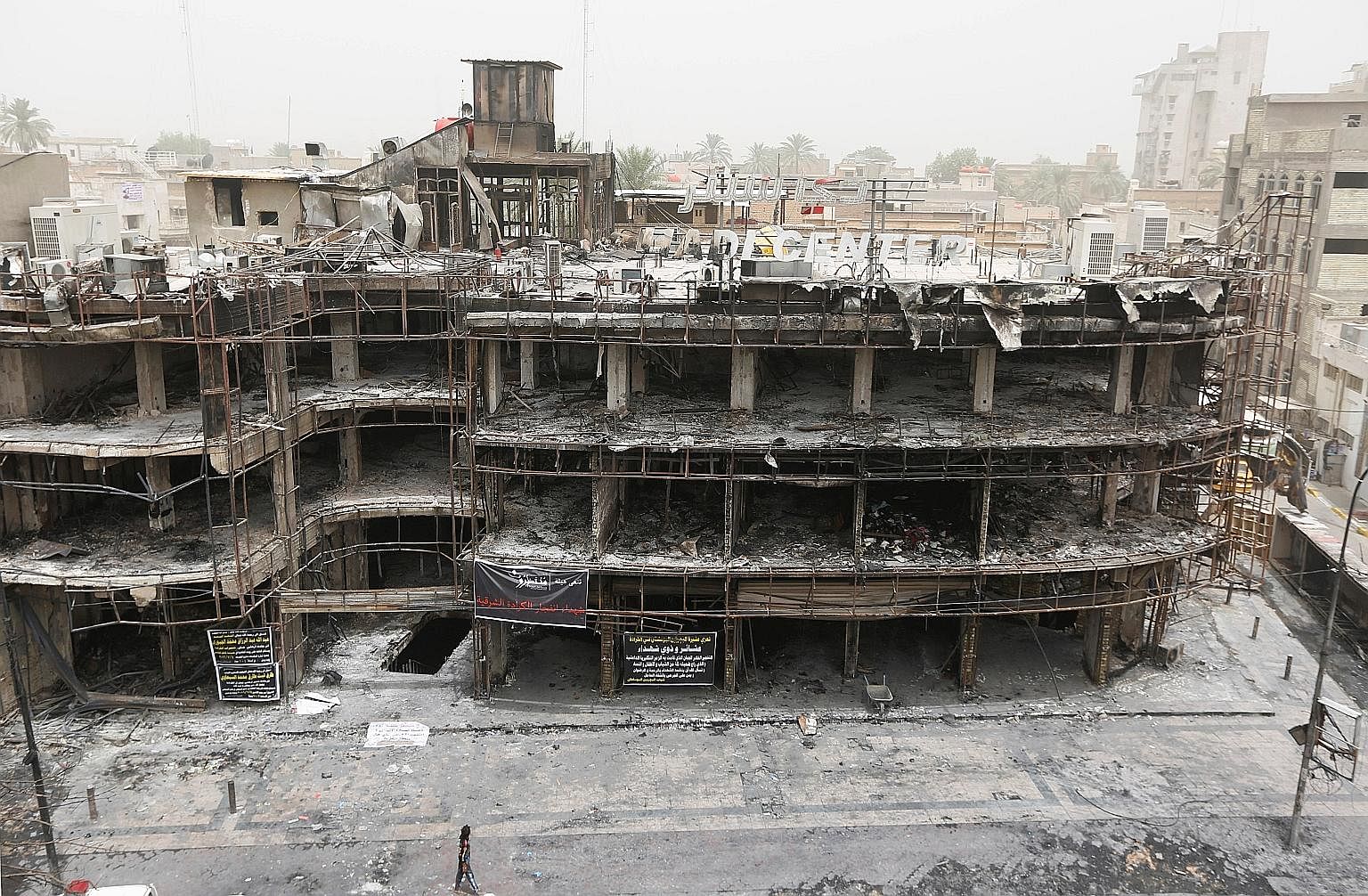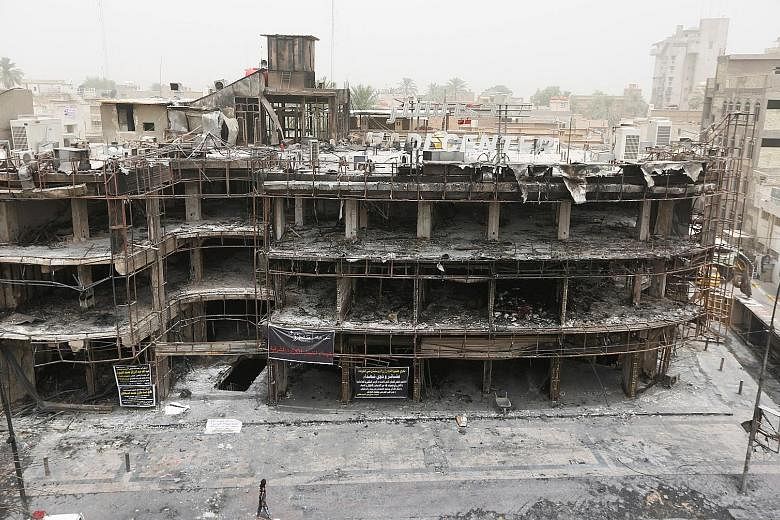NEW YORK • Massacres attributed to the Islamic State in Iraq and Syria (ISIS) have occurred on four continents this year, reflecting how the appeal of the group's ideology is growing even as the territory it controls in Iraq and Syria has receded, according to experts.
The slaughter of civilians in three large attacks in the past week alone - in Istanbul last Tuesday, in Dhaka last Friday and in Baghdad on Sunday - suggest that militant actions beyond the self-proclaimed caliphate's borders are taking place more frequently and not necessarily with any overt direction from some headquarters.
There also seems to be a link between the timing of the latest attacks.
As the start of the Muslim holy month of Ramadan approached, militant propagandists told their followers it was a good time to kill people - a view completely against the beliefs of the vast majority of the world's Muslims, for whom violence is completely dissonant with the holy month.
A spokesman for ISIS said in late May that militants should "make it, with God's permission, a month of pain for infidels everywhere".
Even more alarmingly, a growing number of attacks, starting with those in Paris and Brussels, have been conducted by gangs of assailants, instead of by an individual gunman.

"What's striking to me about the Istanbul and Dhaka attacks is that both weren't done by lone wolves at all," said Mr Bruce Riedel, a former Central Intelligence Agency counter-terrorism official and analyst of Al-Qaeda and ISIS, now at the Brookings Institution.
"These were done by teams of terrorists working with a very thought-through attack plan. I call them wolf-pack attacks."
Last week, to mark the two-year anniversary of its self-declared caliphate, ISIS created a chart showing its influence, stretching from the moderate control it claims in the Philippines to a "covert" presence in France, with 15 other countries in between.
Even countries not on the list are fearful. In India, the government says dozens of Indian Muslims are being monitored after they had undergone some kind of training with ISIS, but Indian officials acknowledge the actual number may be much higher.
While the core of the caliphate in Iraq and Syria has been pummelled by coalition air strikes and by armies and militias fighting the militants on the ground, ISIS soldiers have spread throughout the Middle East and far afield.
The group's highly regimented structure includes a unit dedicated to facilitating attacks on foreign soil, US and European officials say.
Increasingly, it's the idea of ISIS, rather than the group's control of any territory, that has taken on greater significance. "As Dhaka and Istanbul demonstrate, the idea is being translated into a tactic that is much more dangerous than inspiring a single individual to go out and carry out an attack," Mr Riedel said.
"As horrific as Orlando was, had it been four guys in the bar, think how much more complicated it would have been. It's making the challenge of defeating it more and more urgent, as well as more and more difficult."
NEW YORK TIMES

